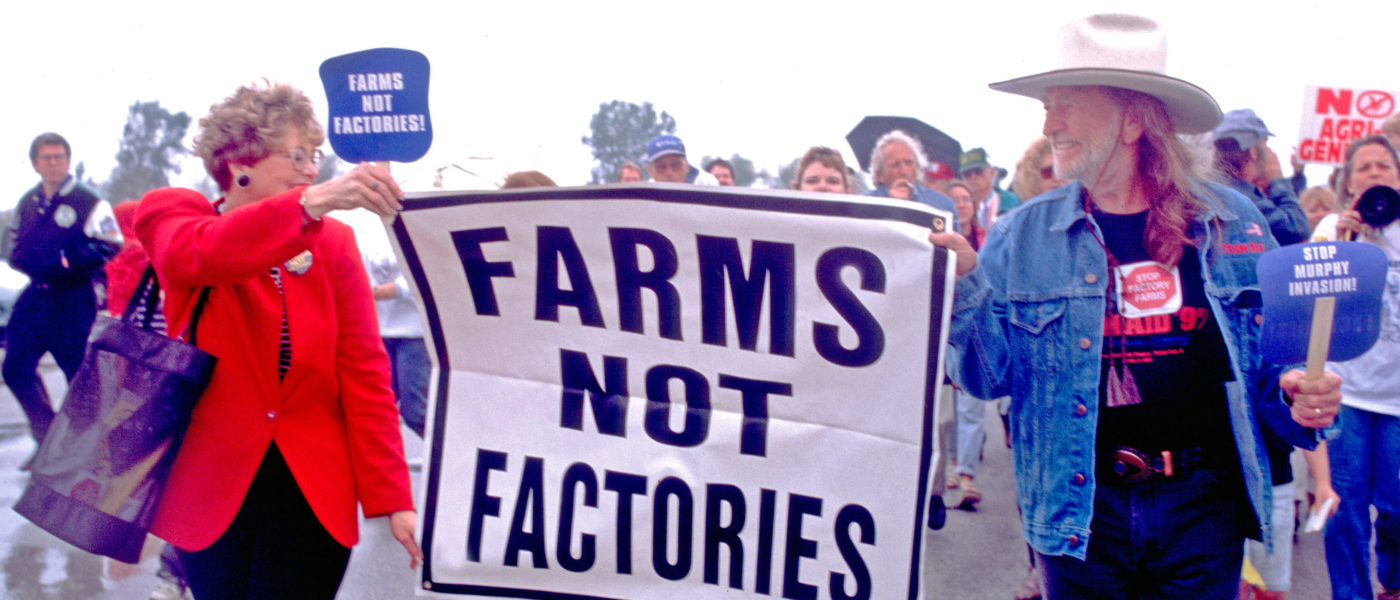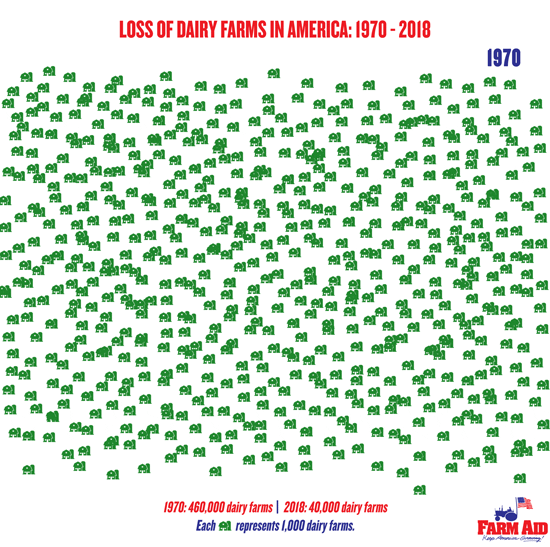In Winona County, Minnesota, family farmers and community members are fighting for the future of agriculture in the county, the protection of their water and air, and for their democracy. They’re up against a mega-dairy farm that has been seeking to expand their operation since 2019 by about 3,000 cows, which would make it larger than 98% of Minnesota farms.
In order for Daley Farm to expand, they need an exemption to exceed the county’s current animal unit cap of 1,500 animal units (their plans would surpass the cap by almost four times). The Winona County Board of Adjustment has denied the exemption twice and the Minnesota Court of Appeals declined to take up an appeal case in November 2021, but Daley Farm is trying yet again through another legal appeal.
Factory farms push family farmers off the land and put independent producers out of business.
Farm Aid has joined the family farmers and residents of Winona County in their legal fight to preserve the current animal cap by making a strategic grant to Land Stewardship Project (LSP). LSP is one of our long-time partners, and with hundreds of farmers who make up their membership, they work to foster an ethic of stewardship for farmland, to promote sustainable agriculture, and to develop healthy communities in the state of Minnesota. At the core of their work are the values of stewardship, justice, and democracy—all of which are at stake in Winona County.
Winona County’s cap on farm animals is very intentional and was enacted by the community to allow for a family farm-based system of livestock agriculture. Such a cap is particularly important in a region like southeastern Minnesota, where groundwater is vulnerable to contamination as a result of the region’s porous karst geology. Daley Farm’s proposed expanded Concentrated Animal Feeding Operations (CAFO, more commonly known as a factory farm) would use 92 million gallons of the area’s groundwater per year and produce 46 million gallons of manure and wastewater.
Hear from family farmers and community members about what’s at stake:
As LSP points out, factory farms pose a serious threat to the health and well-being of rural communities. These large-scale industrial operations push family farmers off the land and put independent producers out of business. Local economies suffer as more and more land is consolidated into fewer and fewer hands. Factory farms also pose numerous environmental hazards — such as water pollution, noxious odors and toxic air emissions—that greatly impact the health of nearby residents.
For decades, Land Stewardship Project members have used the power of local democracy to stop factory farms and build more vibrant rural communities. Through local control, townships and counties can block unwanted development, planning instead for projects that put the land and the people first. Approving the exemption for Daley Farms would deny the will of the community and the local control that gives community members the power to make decisions—the very heart of democracy.
As LSP puts it, the people of Winona County made it clear in 1998 when the animal unit cap was instituted and in 2019 when Daley Farm’s original request for a variance was denied that the protection of the area’s water, air and small to mid-sized farms are more important values to the community than the profits of one mega-operation, or the advancement of an unsustainable model of agriculture that drives out small farms, externalizes the cost of their pollution, and takes profits out of the community.
Those who defend factory farms often portray those who fight against them as city dwellers who don’t understand agriculture. The reality is that rural community members—especially family farmers—across the U.S. are on the frontlines of this fight, and for them it’s personal. Factory farms impact their health, happiness and ability to enjoy their homes; factory farms affect their natural resources, from the water they drink to the air they breathe; factory farms damage their property values, robbing them of their financial security; and for family farmers, factory farms are a sign of the consolidation that drives down the prices they receive for their products and their ability to stay on their land.
For these communities, it’s personal, but factory farms impact all of us. Especially as we look to address climate change through sustainable and regenerative agriculture, the answer is not to build new factory farms.
If you’d like to support Land Stewardship Project in their work to protect the water, air, family farms and community members of Winona County, please visit their website to learn more.
Further Reading
In 2018, we dug deep into the variety of factors taking a toll on dairy farmers in Minnesota and beyond. Read Dairy: Family Farmers in Crisis to learn more.




